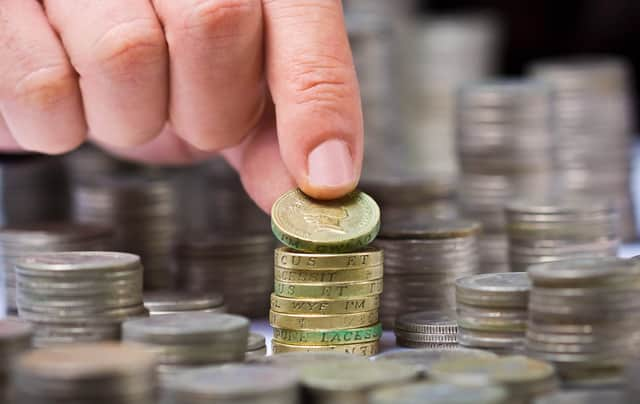Here’s how the Budget announcement will affect your personal finances - key changes you need to know


Chancellor Rishi Sunak unveiled the UK government’s tax and spending plans for the year ahead in the 2021 Budget on Wednesday (3 March).
In the annual statement, Mr Sunak announced new measures to help support jobs and businesses through the pandemic, as well as plans to support the UK’s long-term economic recovery.
Advertisement
Hide AdAdvertisement
Hide AdThe spending plan included an extension of the furlough scheme, the fourth self-employment grant, stamp duty holiday, and an uplift to Universal Credit.
Here is a summary of the key announcements and how it could affect your finances.
Furlough extension
The Chancellor confirmed that the furlough scheme will be extended until the end of September, meaning the government will continue to pay 80 per cent of employees’ wages for hours they cannot work.
Employers will be asked to make a contribution of 10 per cent in July and 20 per cent in August and September.
Advertisement
Hide AdAdvertisement
Hide AdSelf-employment grant
The self-employed income support scheme (SEISS) has also been extended until september, and 600,000 more self-employed people will be eligible for help as access to grants is widened.
The fourth grant will February to April and will be worth 80 per cent of average trading profits up to £7,500
The fifth grant will cover the period of May to July and people will be able to apply for it in the summer.
Universal Credit
The £20 weekly uplift in Universal Credit has been extended for another six months, but will instead be paid as a one-off instalment of £500.
Advertisement
Hide AdAdvertisement
Hide AdThe payment was due to run out on 31 March but the Treasury faced pressure from MPs, charities and members of the public to extend the uplift, which is worth £1,040 per year, past the deadline.
Minimum wage
Minimum wage will increase to £8.91 per hour from April. This change applies to workers aged 23 and over, after the age threshold was lowered from 25.
At the moment, people aged 25 and over receive a minimum wage of £8.72 per hour, while those aged between 21 and 24 get £8.20.
The changes mean if people aged between 21 and 22 you will get a minimum of £8.36 per hour from April, while people aged between 18 and 20 will earn £6.56.
Advertisement
Hide AdAdvertisement
Hide AdMinimum wage for under 18s will also increase to £4.62 and apprentices will receive £4.30.
Tax
No changes to rates of income tax, national insurance or VAT will be made.
Tax-free personal allowance will be frozen at £12,570 from April 2021 levels to 2026, while the higher rate income tax threshold will be frozen at £50,270 over the same period.
Corporation tax on company profits above £250,000 will rise from 19 per cent to 25 per cent in April 2023, although the rate will be kept at 19 per cent for around 1.5 million smaller companies with profits of less than £50,000.
Advertisement
Hide AdAdvertisement
Hide AdAlcohol duties will also be frozen for the second consecutive year, along with fuel duty.
Business support
There will be a £5 billion restart grant for non-essential businesses to help companies restart after lockdown, with firms able to receive up to £6,000 per premises.
There will also be £400million made available to help arts venues, like museums and galleries in England to reopen, and the business rates holiday for firms in England will also continue from April until June.
The VAT cut for hospitality businesses will be maintained at five per cent until September, with an interim 12.5 per cent rate to apply for six months after that.
Advertisement
Hide AdAdvertisement
Hide AdStamp duty
The stamp duty holiday on house purchases was due to come to an end on 31 March, but will now be extended to 30 June.
This means that no tax will be charged on sales of properties up to £500,000. The tax will be kept at double its standard level until the end of September, before returning to usual levels from the start of October.
As such, budding home owners will have an additional three months to make huge savings on a house purchase.
Mortgage guarantee scheme
The government announced a new mortgage guarantee scheme to help aspiring homeowners with small deposits get onto the property ladder.
Advertisement
Hide AdAdvertisement
Hide AdThe scheme will be available to lenders from April and will allow buyers with just five per cent deposits to buy properties worth up to £600,000.
Lenders will be able to purchase a government guarantee that compensates them for a portion of their losses in the event of foreclosure.